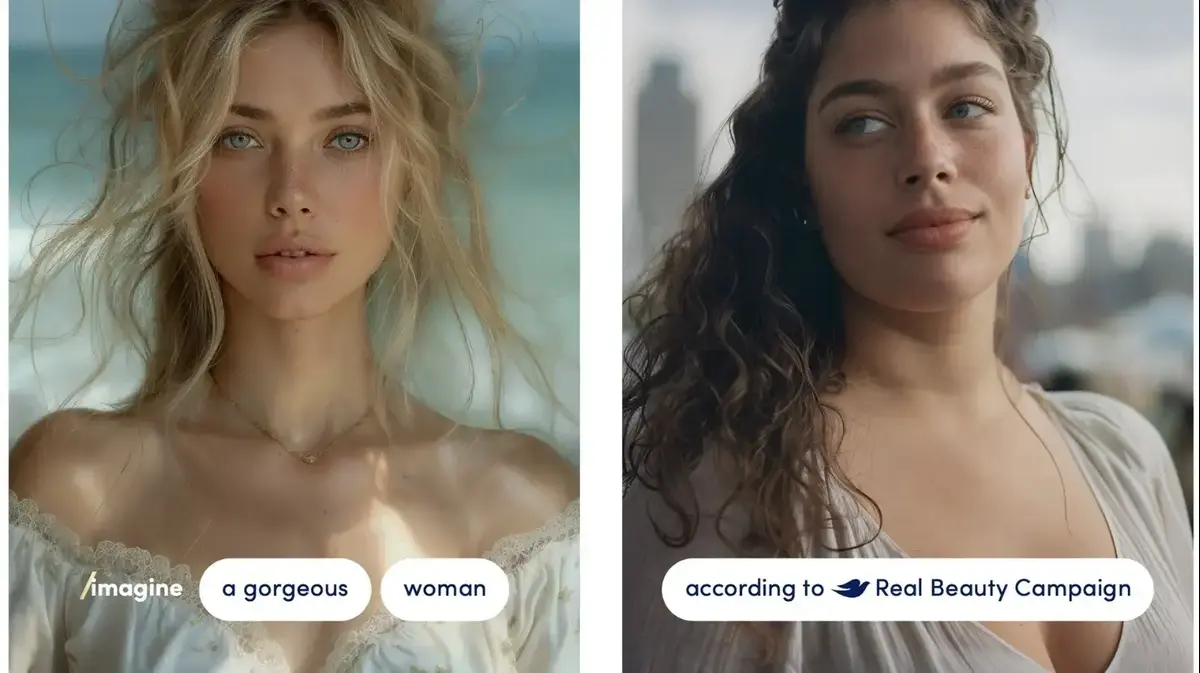During the last edition of the Consumer Electronics Show (CES) in Las Vegas, L'Oréal's technological incubator presented Perso, a device capable of offering cosmetic solutions - creams, serums, ampoules ... - tailored and on the spot. And that's only the beginning: soon you will have the ability to also create lipsticks and makeup bases to the liking of the users. There are still months before it reaches the stores, but from Perso it is already said that it is everything the cosmetics business was waiting for from artificial intelligence (AI): a system that evaluates the state of the skin, allowing the formulas to be adapted of the creams based on the results that we are obtaining. Juniper Research, one of the largest market experts in technology, announced it in its latest study in this regard: by 2022, we will spend € 6.6 billion on products developed with artificial intelligence, including cosmetics.
The hunger seems such that there are those who cannot wait: Shiseido has just launched in Japan its first AI line, Optune, a beauty kit consisting of a machine with five cartridges (Optune Shot) that can formulate up to a thousand different mixtures from of its ingredients and an application for mobile devices that informs which is the best option for the dermis according to the day if it has been provided with the necessary information (skin photograph, hours of sleep, humidity, pollen levels and contamination of the air…). With the data we have come across.
“Data analysis has been around for a long time in the cosmetic sector, especially in terms of formulation - improving moisturizers or wrinkles - and sales. However, the rise of enablers such as big data has allowed an increase in demand for AI solutions in the last five years, "explains Raúl Hussein Galindo, a computer engineer at ITI, a Valencian company specialized in developing R&D and innovation projects. offer advisory, training and technological information services. The question below can only be one: And what is demanded? "Increasingly healthier articles, aimed at a racial group with specific needs ...", responds the expert. "In the past four months, I have already visited five major companies that wanted to know how to cut AI time to redesign their products so that they are more environmentally friendly and responsive to current consumer demand levels."
"In 2022, € 6.6 billion will be spent on products developed with artificial intelligence, including cosmetics"
Despite the speed of response, AI and data mining actually take time to pay off. This is corroborated by Aurelio Tornero Feliciano, industrial engineer and general manager of the RNB factory, a cosmetic laboratory also located in Valencia. Founded in 1994 by pharmacists Vicente Ruiz and Romualdo Bertomeu, pioneers of low-cost beauty with the Deliplus anti-cellulite line, today it is a giant that invoices almost 92 million euros a year and fills the perfumery sections of British and Israeli hypermarket chains. . In Spain, Mercadona is the main supporter of its highly praised - for quality and price - facial and body treatments.
"What we have done with AI is to focus on the ingredients to see which of them had the most synergies and how we could characterize them using computer programs. Once we had the method ready, we began to apply the results the same in products that were already on the market as in those that we had in development, ”says Tornero Feliciano. RNB is also the company behind Laboratorios Babé, focused on the production and sale of dermo-cosmetics in pharmacies that will soon launch a fully developed anti-aging line with IA.
"Demands are being made for healthier and healthier items or for a racial group with specific needs ..."
Tornero assures that working with data is already a routine: “The exploitation is carried out using advanced statistical techniques. After extracting the information of our products, we cross sales data with the compositions of the formulas and the characteristics of the chemicals used. A path that now seems clear, although in the past we had a hard time realizing the immense possibilities that lay ahead. Thus we have found solutions to problems that, at times, we did not even know existed ”. And the engineer concludes below: "These are the techniques that have allowed us a substantial improvement in the quality indexes of the formulations of our cosmetics from the point of view of the user experience."
The result: more efficient creams, more pleasant textures, more attractive fragrances ... Improved products based on everyone's tastes and needs.
The experiences, for the moment, focus especially on digital beauty assistants, such as L'Oréal's ModiFace system. The cosmetic giant acquired in 2018 the Canadian company of AI and augmented reality that gives its name to this application, which allows to test makeup in a virtual way and is shipped via Amazon to the United States and Japan. The Magic Mirror — Bourjois' lipstick tester — and Coty's Let's Get Ready, the latter in alliance with Amazon and its Echo Show, from which Alexa, his voice assistant, offer tips, routines, tutorials are also starting to become popular. and recommendations.
In addition, the trail of smart cosmetics can be followed in the increasingly used online applications and services such as Olay's Skin Advisor, Clinique's ClinicalReality or My Beauty Matches. Just take a selfie, upload it and let the algorithm on duty do the rest. “The sum of tools such as big data and AI help predict consumer behaviors, which are at the mercy of socio-economic, cultural or fashion factors. What has changed? Before working with samples, populations or consumers, and now we have expanded the scope: we can measure impact on social networks, segment the buyer, contact him or her personally, motivate them to participate through tools [apps] ... Finally there is an interaction, a direct conversation between the potential client and the brand, ”says Hussein Galindo.
There is a shadow, and not exactly of eyes, that tarnishes this euphoria around intelligent beauty. The privacy issue, of course. It is hearing about big data and becoming suspicious of personal information marketing and invasion of privacy. "The disruption will come with genuine dialogue between brands and consumers," concludes the computer engineer. "We must continue to mature in line with the impact of this type of solution, because now everyone is very sensitive ... Isn't that mirror that is putting makeup on me, with all those integrated facial recognition cameras? Until we mature as a digital society, change cannot come. ”








